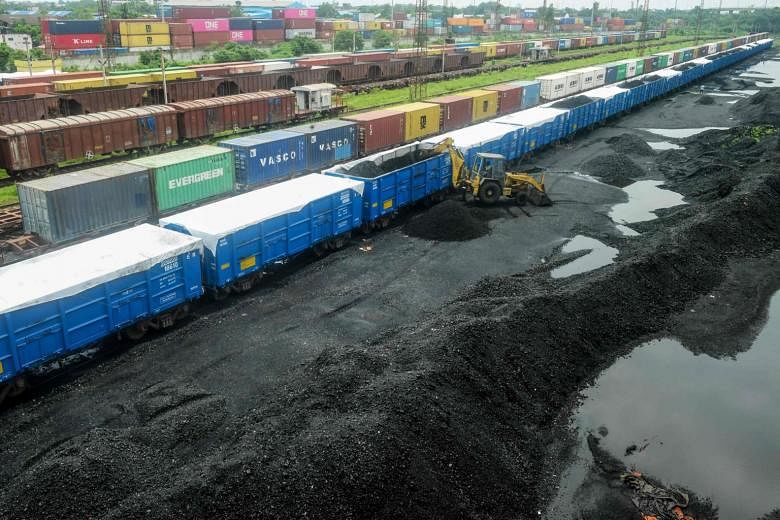BANGALORE - The United Nations' Secretary-General called the Indian government's growing investment in coal "deeply troubling" on Friday (Aug 28) and warned that expanding fossil fuel subsidies is "a human disaster and bad economics" that only means "more deaths and rising healthcare costs".
The statement by Mr António Guterres, made during an online lecture held by the non-profit Energy and Resources Institute in Bangalore, comes as India prepares to hold its first commercial coal mine auction in October.
The government has said auctioning 41 coal blocks is part of India's stimulus for economic recovery from the coronavirus pandemic. But climate change activists and states with coal reserves have opposed the auctions. India's major coal investor Adani Group will sit out the auction.
Mr Guterres said it makes "no commercial sense" to double down on domestic coal and open up coal auctions. As the cost of renewables falls, and 39 per cent of coal plants become uncompetitive - some 60 per cent could become so in 2022 - the world's largest investors are increasingly abandoning coal, he added.
India is the world's third largest emitter of greenhouse gases, after China and the United States.
Coal provides about half of India's commercial primary energy supply today and is the dominant fuel for power production. It accounts for 80 per cent of all industrial emissions.
India has committed to making clean renewable energy 40 per cent of the energy mix by 2040 and last year, its spending on solar energy surpassed that on coal-fired power generation for the first time.
"Yet, here in India, subsidies for fossil fuels are still some seven times more than subsidies for clean energy," said Mr Guterres. The huge amount of subsidies comes as many Indian coal plants are financially distressed, and ready to be overtaken by renewables and clean coal plants.
He spoke of India's role in building stable, inclusive economies and staving off the threat of climate change. This meant "ending fossil fuel subsidies, placing a price on carbon pollution and committing to no new coal after 2020", he added.
Twenty business leaders from India have also signed a statement asking the Indian government to accelerate the move away from coal, support electric vehicles and pioneer "green industrialisation". The signatories include major Indian corporations like Tata Power, Tata Steel, Dalmia Cements, Godrej Industries, Danfoss Industries, Flipkart India, and Bharat Petroleum.
India's central bank, in its annual economic outlook released on Aug 25, said the impacts of climate change would be the most severe and India would need an appropriate framework to manage financial risks arising from worsening and erratic weather conditions. India was hit by eight cyclones in 2019, the highest since 1976, and floods have already devastated three states in 2020.
At the same conference where Mr Guterres spoke, Indian External Affairs Minister S. Jaishankar highlighted Prime Minister Narendra Modi's lead in creating the International Solar Alliance and getting 67 countries to sign a framework agreement.
"India is emerging as a world leader in green transitions," the minister said.
Ms Aarti Khosla, director of think tank Climate Trends, said: "The contradictory nature of India's targets - simultaneously pushing for coal and renewables - will definitely mean a delay in the transition to a decarbonised economy."
Experts expect coal to dominate the power economy at least until 2030. A Brookings India 2019 report shows that India's growth in the coal-fired power capacity is far in excess of growth in electricity demand.
After years of stitching together a clean coal policy, however, experts say India has undone these plans. On May 21, the environment ministry reversed a January 2014 notification that required thermal power plants to use coal with less than 34 per cent ash content.
New regulations allow power plants to now use low-grade Indian coal that produces more fly ash, as long as they meet emissions norms and control pollution.
Senior researchers Kanchi Kohli and Manju Menon wrote in a Centre for Policy Research report that allowing the use of dirty coal and making pollution management the responsibility of power plants is "not tenable".
"By refusing to remedy the governance problems of coal use and allowing rogue coal power plants to bypass washeries, the environment ministry has put on the line the lives of the poorest people residing in the country's coal enclaves," they said.
Mr Guterres had this advice for India: "Do not bail out polluting industries. End fossil-fuel subsidies."


